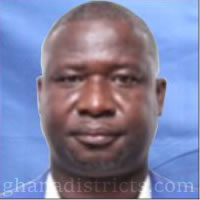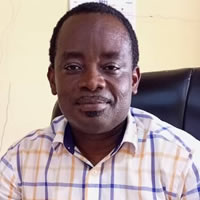Water
Accessibility to good drinking water is very fundamental for the well-being of people and also for use in agricultural, industrial, domestic and mining activities. Its absence has negative implication on human habitation. The linkage between potable water and good health is far reaching.
There are quite a number of potable water supply systems in the District. These are pipe borne from Barekese and Owabi Water Works, boreholes and hand dug wells fitted with pumps. About 80% of the population in the district has access to potable water.
Boreholes are being drilled in every part of the district to afford communities the chance to have access to drinking water. New community boreholes were drilled at Kobeng, Seidi, Amanchia and Koforidua. A total of ***** have so far been drilled this year.
Most communities in the urban/ peri-urban parts of the district have pipe borne water supply facilities. The flow and quality of water from the pipe has improved since 2006. However, some inhabitants still resort to none potable sources. Measures are required to increase the coverage, ensure reliability, continuous flow and protection of the natural water sources and catchments areas.
Potential and Opportunities for water delivery
Ghana Water Company Ltd exists in the district. There are also 2 major headworks for the treatment and distribution of water, which are located at Barekese and Owabi. The company and the headworks provide the opportunities for the expansion, rehabilitation and management of urban pipe borne water system in the district.
The existence of an active 3-member District Water Sanitation Team (DWST) in the district for the sensitization of communities and monitoring the implementation of the DWSP.
Strong commitment of the District Assembly to solve water problems.
Availability of surface and underground water in most parts of the district. Some of the surface water sources are rivers Offin, Owabi, Kobri, Dwayem.
Development partners such as KfW and AfDB are already in the district. KfW has supported the district to drill boreholes.
Availability of technical support from CWSA to implement the DWSP.
There are some trained area mechanics and hand pumps care-takers as well as active water communities. Institutions and structures involved in the provision and management of portable water in the district include the following:
District Assembly/ District Water Sanitation Team
Ghana Water Company Limited (Responsible for Urban/peri-urban water supply and management.
Sanitation
Types of toilet facilities in the District include Water Closets (WCs), Ventilated Improved Pit latrines, public KVIPs and public Aqua Privy Latrines. The total safe toilet facilities coverage in the district is 33.17%. This means that about 66.83% of the population rely on unsafe methods. This situation contributes to the spread of excremental diseases like worm infestation, Diarrhoea and Typhoid. It is therefore important that the district continue its vigorous promotion of the provision of safe places of convenience, especially household toilet facilities.
Solid waste in the district is generated from domestic (household), commercial (market and trading activities) and institutional. About 70% of the solid waste generated in the district is organic. Plastic waste is also high.
Open dumping of refuse is the main method of refuse disposal in most communities in the District. However, the method is not properly managed and has resulted in indiscriminate disposal of refuse and also the creation of huge piles of refuse in most settlements in the district. There are 36 huge piles refuse in the district. These dumping sites serve as breeding grounds for mosquitoes and source of typhoid, cholera and other sanitation related diseases.
Sanitary tools and equipment are inadequate for refuse management in the district. The District Assembly has only one tractor, one skip loader, seven large refuse containers and 15 tricycles, for refuse collection and disposal in the district.
Sites for final disposal of refuse are also inadequate. Apart from the site located at Manhyia, which serves Abuakwa and its environs, other towns such as Nkawie, Toase, Asuofua, Barekese, Adankwame etc, do not have final refuse disposal sites. Some of the domestic waste that is generated in the district finds its way into drains, streams and other water bodies.
There is the need for additional refuse containers to be located at vantage points for refuse collection and its disposal in Abuakwa and other urban areas in the district. The acquisition and development of sites for final disposal of refuse and intensive hygiene and sanitation education are necessary for proper waste management in the district. Zoomlion has partnered the District Environment Office to ensure a clean environment within the district. The current situation also provides opportunity for private sector participation in solid waste management in the district.
Date Created : 11/24/2017 5:48:37 AM





 facebook
facebook twitter
twitter Youtube
Youtube TOLL FREE 0800 430 430
TOLL FREE 0800 430 430 +233 593 831 280
+233 593 831 280 GPS: GE-231-4383
GPS: GE-231-4383 info@ghanadistricts.com
info@ghanadistricts.com Box GP1044, Accra, Ghana
Box GP1044, Accra, Ghana